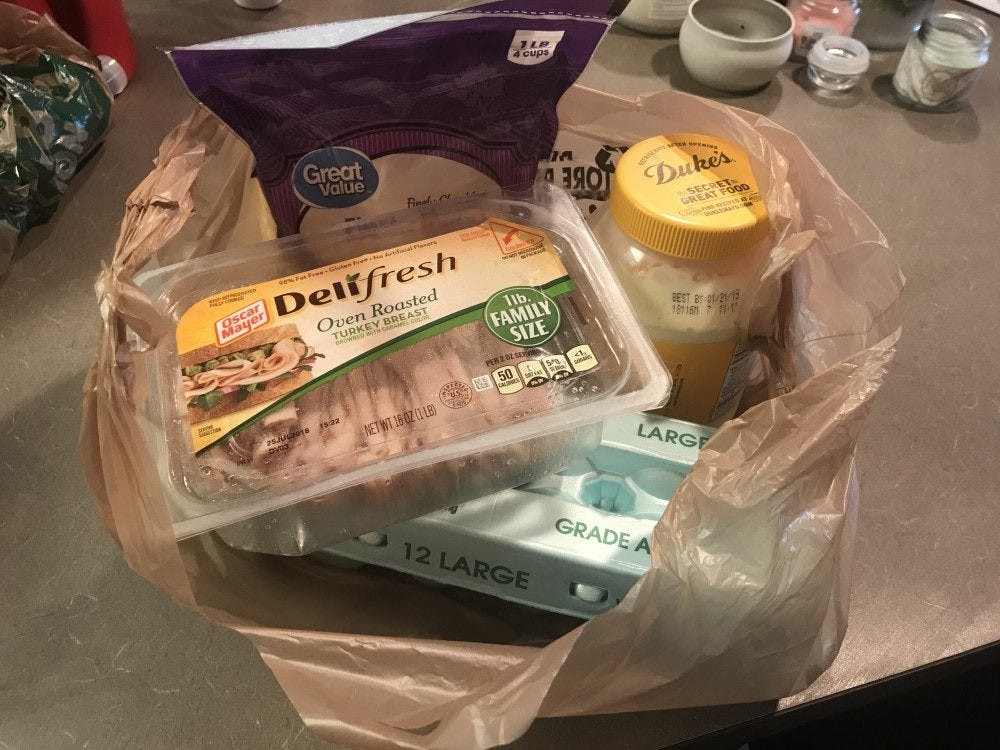The United States Government Accountability Office released a long-awaited report this January surveying food insecurity on college campuses. The report confirmed what many researchers have revealed over the past decade — college students are struggling with food insecurity on two- and four-year university campuses at shocking rates. After conducting a review of thirty-one studies of food insecurity on college campuses, the GAO concluded that about a third of U.S. college students struggle with food insecurity. Though varying metrics are used to quantify food insecurity, the term is broadly defined as not being able to get enough to eat on a daily basis and unsurprisingly correlates with lower graduation rates and homelessness.
While the GAO’s report focuses broadly on U.S. college students, many of whom do not attend four-year universities, Temple University Prof. Sara Goldrick-Rab’s 2018 Wisconsin HOPE Lab study of food insecurity on campus — the largest study of food insecurity at four-year institutions to date — demonstrates that 36 percent of four-year university students are food insecure. The survey also demonstrates that while wealthy, well-funded institutions are presumed to be immune to issues of hunger, food insecurity is in fact prevalent on these campuses. Though the Wisconsin HOPE Lab has conducted three national studies on campus food insecurity, the University has not yet opted to participate or conduct independent research on the topic, making it difficult to know how the University stacks up against national statistics.
To combat food insecurity, food pantries have been popping up on college campuses across the nation. As of June 2018, the College and University Food Bank Alliance reported 641 member organizations, including the U.Va. Community Food Pantry, an on-Grounds student-led initiative intended to serve U.Va. students and staff. From its opening in October 2018, the pantry has served a clientele composed of about two-thirds students and one-third staff members from a location in the Runk Green Room. However, access to the pantry has proved to be an issue due to its remote location on-Grounds. Usage of the U.Va. Community Food Pantry — which continues to grow alongside the pantries housed in the Women’s Center and U.Va. School of Nursing — illustrates that University students, like students at comparable institutions, are struggling with food insecurity even as the issue goes under-recognized.
Students face unique barriers to accessing food, including trouble accessing pantries and a lack of knowledge of or access to SNAP benefits. A 2018 study of on-campus food pantries cited by the GAO concludes that the most prevalent barriers to on-campus food pantry use are stigma, lack of information, inconvenient hours and identity — the feeling that a pantry isn’t for you. The GAO notes that while common assumption holds that remote pantry locations reduce stigma, centralizing pantries and resources actually reduced stigma and logistical barriers to pantry access. Further, the GAO noted that of students eligible for SNAP benefits, nearly 2 million are not currently receiving them, in part because campus administrators don’t understand the intricacies of SNAP eligibility and benefits or do not adequately connect students to these resources. Further, work requirements — which often require students to work at least 20 hours a week in order to receive benefits — limit eligibility among students experiencing food insecurity.
Although food pantries are a critical resource for students struggling with food insecurity, they are essentially inadequate and unsustainable. Pantries provide a stop-gap solution to food insecurity, but fail to address the systemic causes of these issues among students. As federal and state funding decreases and college tuition increases, students and their families across the nation are left to shoulder more of the cost of college, and consequently have less money to pay for their basic needs, like food and housing. Food pantries simply aren’t capable of alleviating the hard choices students are forced to make long-term — between food and textbooks and medicine — due to high tuition rates and inadequate financial aid packages.
Since the University’s tuition continues to increase, it is the administration’s responsibility to address food insecurity and more generalized instances of financial insecurity with institutionalized initiatives that ensure that no student faces food insecurity while on Grounds. In order to begin this project, the University must attempt to better understand and quantify the experiences of food insecure students. Without data, it is impossible to effectively tackle food insecurity on Grounds. While pantry efforts are important and should be supported, the University should invest more heavily in establishing proactive solutions — screening students for food insecurity, connecting eligible students to SNAP benefits, instituting a swipe-sharing program by re-allocating unused meal swipes to students who might need them and working towards a program of more equitable financial aid.
At face value, alleviating food insecurity at the college campuses is an isn’t an exciting, radical policy proposal, but it should be. Food and financial insecurity undergird a wealth of other injustices present at the University, and contribute to the numerous opportunity disparities that shape this institution. No University student or staff member should struggle to find enough to eat, and it is the responsibility of University administration and students to ensure that no one does.
Gwen Dilworth is a fourth-year student in the College and the Executive Director of the U.Va. Community Food Pantry.







